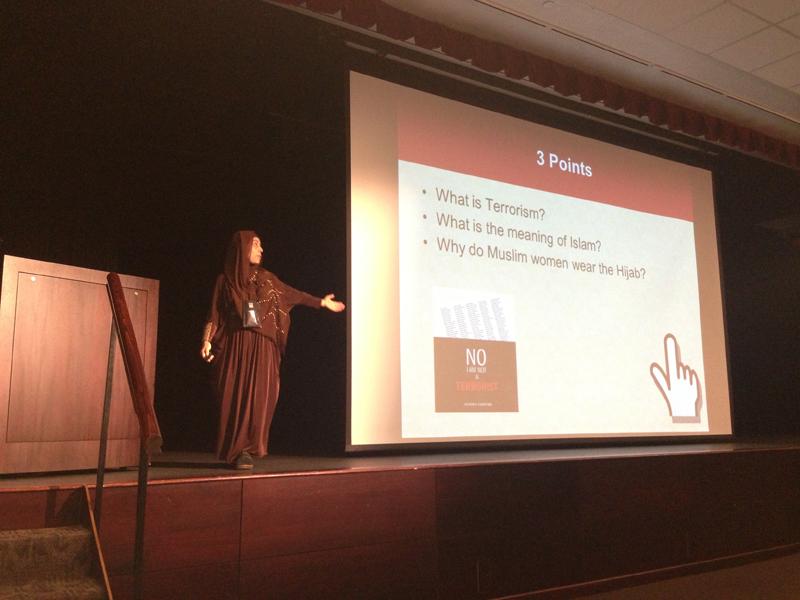Zohra Sarwari, from Afghanistan, challenged America’s view of Muslims in her presentation “No! I am Not a Terrorist!”
Sarwari spoke about Muslim people and their religion Sunday in Velzy Commons during a United We Stand campaign lecture series.
Sarwari said Islam is a religion of peace, and that Muslims throughout history have been documented as peaceful people in a belief system that forbids oppression and killing the innocent.
“Islam means obedience and peace to the Creator and His creation,” Sarwari said.
Muslims in the media
Sarwari said American people began to categorize Muslims as terrorists after Sept. 11, 2001. Media’s coverage on the terrorist attacks was part of the reason for the innacurate connection, she said.
“The media seems to say not all Muslims are terrorists, but all terrorists are Muslims,” Sarwari said.
The association between Muslims and the terrorist group Al-Qaeda was brought into American homes through the media, Sarwari said, but ethnicity does not define the term. Sarwari said the definition of a terrorist is anyone who causes pain to another.
Speaker brought to benefit students
Sarwari, who moved to the United States at six years old, said she was inspired to begin her presentation after speaking to one of her mentors.
She was brought to speak on campus for the United We Stand lecture series and for Campus Programming and Relations’ 9/11 Tribute.
“Our organization chose Zohra Sarwari because we felt that her lecture would be most beneficial for the student body, especially the growing Muslim and international student community,” Holly Sutcliffe, senior animal science major and CPR member said.
Sarwari also discussed the meaning behind the hijab, or headscarf, that Muslim women wear. Hijabs are symbols of dedication to the Muslim faith and represent modesty, purity and faithful submission to God’s law.
“It was interesting to learn the importance of the headscarf in the Islamic religion,” senior biology major Cassandra Williams said. “Women are not oppressed but choose to wear it.”
Although Williams attended the lecture to earn extra credit in her Psychology of Human Sexuality course, she said she left the lecture with a newfound respect for the Islamic religion and felt CPR chose a great speaker.
“(Sarwari) is energetic and enthusiastic,” Williams said. “It’s inspiring that she wants to educate the world.”
Sutcliffe also said she was touched by the presentation. She spoke with Sarwari before the presentation, and she said that in addition to what she learned during the lecture, Sarwari taught her, “We must share our knowledge to leave a legacy.”
“We have more in common than apart,” Sarwari said. “We must unite. This country belongs to all of us.”




